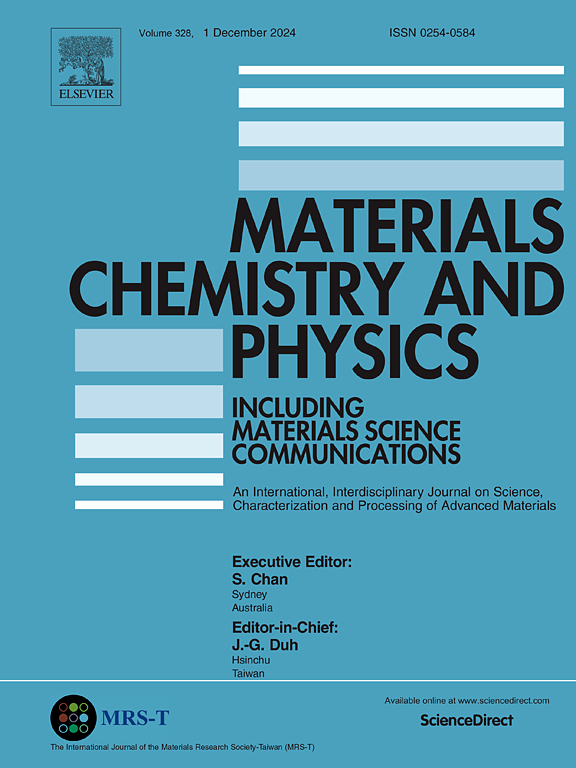Investigations of retention characteristics of persistence contaminant into eco-friendly multi-layers barrier under dynamic conditions
IF 4.3
3区 材料科学
Q2 MATERIALS SCIENCE, MULTIDISCIPLINARY
引用次数: 0
Abstract
Cs retention characteristics onto novel eco-friendly multi-barrier were investigated under dynamic conditions that simulate different environmental conditions. In this respect, nano-clay and quartz samples were tested to optimize the design of the multi-barrier based on the hydraulic and retention performances. The morphology, particle size distribution, mineralogical structure, zeta potential, chemical structure and function groups were investigated. Nano clay is composed of a mixture of Mica, Chlorite, and quartz with minor amounts of Palygorskiteand Sepiolite. The material exhibited superior cesium retention performances via exchange with the intercalated cations in minerals structure. The dynamic retention characteristics of cesium into the barrier were studied under different scenarios that accounts for different contamination levels. The active sites did not reach its saturation capacity and that the equilibrium retention reaction time is much less than the smallest residence time in the barrier. The scenario of saline water or ground water did not affect the performance of the barrier in retaining cesium. The retention reaction is following Freundlich isotherm whereas the reaction kinetics is a first order reaction independent on the studied scenario. Cesium transport through the barrier is subjected to hydrodynamic dispersion, where the retarded hydrodynamic dispersion coefficients are insensitive to the studied scenario.
动态条件下持久性污染物在环保型多层阻隔层中的滞留特性研究
在模拟不同环境条件的动态条件下,研究了新型环保多屏障的铯截留特性。在这方面,对纳米粘土和石英样品进行了测试,以根据水力和截留性能优化多重屏障的设计。研究了纳米粘土和石英样品的形态、粒度分布、矿物结构、ZETA电位、化学结构和功能基团。纳米粘土由云母、绿泥石和石英的混合物组成,并含有少量的白云石和海泡石。该材料通过与矿物结构中的插层阳离子交换,表现出卓越的铯截留性能。在不同的污染水平下,研究了铯在屏障中的动态截留特性。活性位点没有达到饱和能力,平衡滞留反应时间远远小于在屏障中的最小停留时间。盐水或地下水并不影响阻隔层截留铯的性能。截留反应遵循 Freundlich 等温线,而反应动力学是一阶反应,与所研究的情况无关。铯通过隔板的迁移受流体动力扩散的影响,其中迟滞流体动力扩散系数对所研究的情况不敏感。
本文章由计算机程序翻译,如有差异,请以英文原文为准。
求助全文
约1分钟内获得全文
求助全文
来源期刊

Materials Chemistry and Physics
工程技术-材料科学:综合
CiteScore
8.70
自引率
4.30%
发文量
1515
审稿时长
69 days
期刊介绍:
Materials Chemistry and Physics is devoted to short communications, full-length research papers and feature articles on interrelationships among structure, properties, processing and performance of materials. The Editors welcome manuscripts on thin films, surface and interface science, materials degradation and reliability, metallurgy, semiconductors and optoelectronic materials, fine ceramics, magnetics, superconductors, specialty polymers, nano-materials and composite materials.
 求助内容:
求助内容: 应助结果提醒方式:
应助结果提醒方式:


